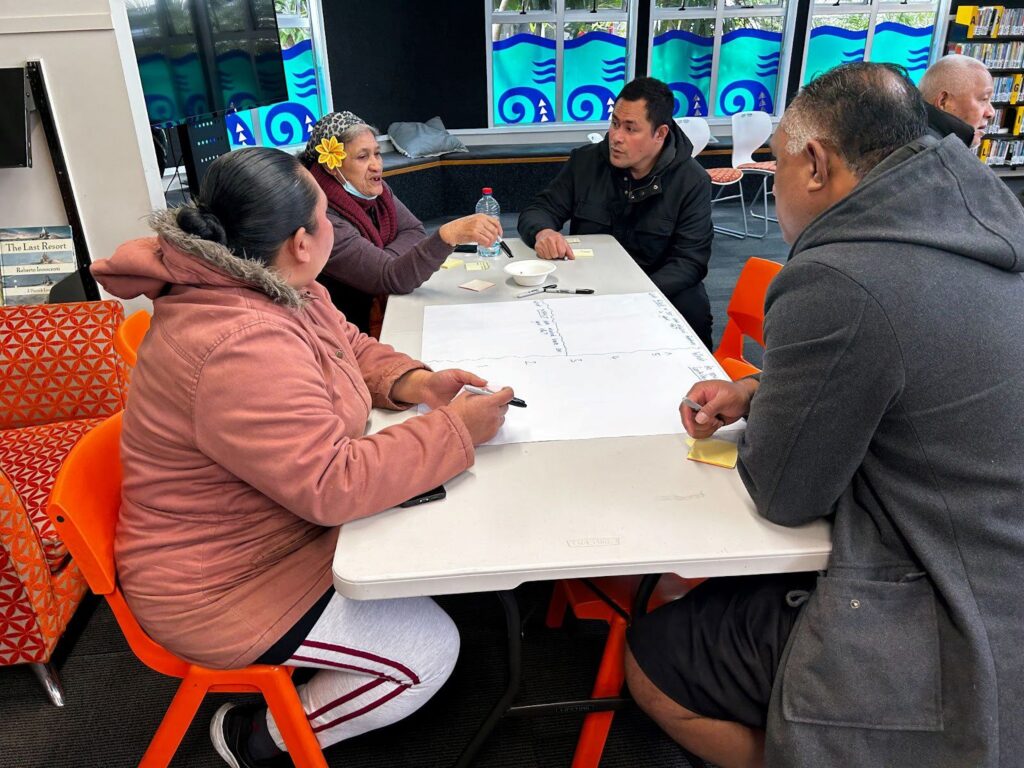
Healthy Families South Auckland (The Cause Collective) have recently held talanoa sessions with Manurewa whānau to hear about their lived experiences with alcohol harm.
Parents at Roscommon School and Mangopare (youth programme) in Clendon Park were invited to a talanoa (discussion) session with the HFSA team to talk about the negative effects of alcohol on them, their families and community.
“Both sessions were really insightful as we heard from different people in the Manurewa community,” says Ashlynn Ale, Systems Innovator at Healthy Families South Auckland.
“The session with Roscommon School was conducted primarily in Gagana Samoa with parents from Fotu O Nu’u Pule, their Samoan bilingual unit. It highlighted the different perspectives they have experienced when it comes to the negative influences of alcohol on the individual, family unit and community. These issues include individual challenges like addiction and health complications, family-related problems such as domestic violence and financial hardships, and community-wide disturbances, including fights and property damage.
“The primary findings revealed that individuals are experiencing a sense of insecurity within their local communities. This insecurity is intensified by the adverse consequences of alcohol-related harm, including damage to public spaces like parks and communal areas, which are gathering spots for alcohol consumption.
Additionally, respondents noted that this situation has contributed to physical altercations and the creation of disturbances that inconvenience local residents. They believe there are simply too many liquor stores or outlets where alcohol is readily available, and that there needs to be more for young people to do to keep them occupied and therefore less vulnerable to the pull of drinking,” she says.
The intention of the sessions is to understand the lived experience of whānau and communities in Manurewa, so that we can determine together how best to address the conditions that lead to the negative impacts of alcohol and how best to address the conditions that lead to preventable chronic disease.
“A huge thank you to the parents from Roscommon and the youth from Mangopare, The Pride Project. The youth were incredible to listen to and hear their lived experiences. They opened up to our team and shared willingly. They have concrete ideas of how they can chart a different course from what they faced.”
“Across the various engagements with community, the fact that alcohol is too easily accessible (price and availability) has come through constantly but what has also been consistently stated is that it all starts at home. We need those within the system to value community voice more than that of alcohol lobbyists/commercial interests and we need to amplify the work of those striving to strengthen the family unit (however that may look) and build community connections.”
According to research released in 2023 by the University of Otago, published in the Journal of Psychopharmacology. Kiwi researchers found that, when separately considering harm to those who use it and harm to others, alcohol was the most harmful drug for the total population. It ranked ahead of methamphetamine, synthetic cannabinoids and tobacco.